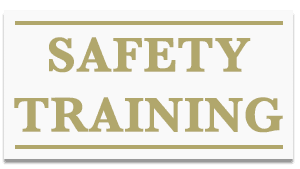Driving Safety: How To Keep Our Kids Safe On The Road

WTRF: The 100 deadliest days: one of the most dangerous times of the year for teenage drivers. Memorial Day to Labor Day marks the 100 deadliest days, a time where there are more traffic fatalities involving teenage drivers. School is out, there are more teenage drivers on the road, more people are on vacation, and many more reasons are to blame.
No matter the child, no matter the car, the thought of a teenager driving is something that terrifies parents across our country. The fear of something happening to a child only increases during the summer months as roads fill up with vacationers and students on summer break. While we would all love to be in the car every time a child gets behind the wheel, it isn’t always possible. This is why certain driving safety ground rules should be shared with our families on a regular basis.
The Phone: Turn it off and put it away.
This is the only way to remove the distraction of a cellphone in the car. Teens will use a variety of pleas as to why their phone is necessary when driving. It is their navigator, their radio, and their connection to the rest of the world. All mentioned are distractions. Over 1.5 million crashes happen every year because of cellphone use.
If you’re hungry, stop and eat.
Remind your kids that eating while driving poses a similar threat as using your cellphone. Both mentally and physically, eating takes part of their focus off the road. Park the car, eat the food, then get back on the road.
Slow down. Slow down. Slow down.
Speeding results in 31% off all traffic accidents. Teenagers have the tendency to feel invincible in life, especially behind the wheel. Speeding becomes a means of saving time and reaching their destination sooner. Implore your kids and their friends to leave earlier, focus, and that the consequences of tardiness are far below the risks of speeding.
Lead by example
The above advice holds absolutely zero weight if we as parents fail to practice what we preach. Teenagers want to see it for themselves rather than be told to do something because you said so. Even if you have decades of experience behind the wheel, we are no less vulnerable to the same distractions as our children. We must turn off our phones, slow down, and remove all distractions in our driving before we can expect our loved ones to do the same.
Fred Rine, M.S., CSP, is a nationally recognized leader in workplace safety who designs programs that get results. Fred created an Attitude-Based Safety Culture Training program that has been attended by more than 500,000 people and that has contributed to significant improvements in workplace safety at companies all around the country.



